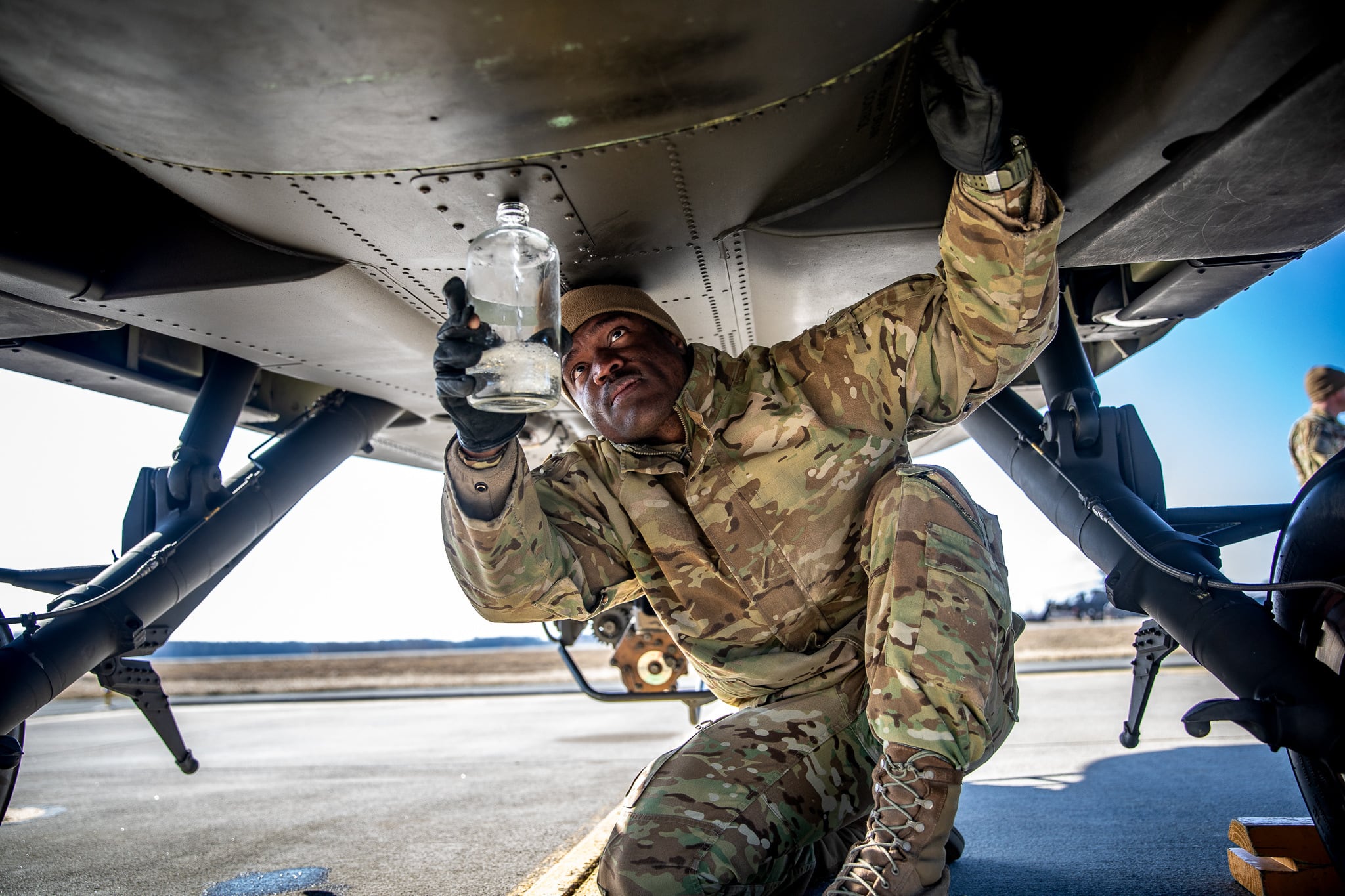WASHINGTON — U.S. defense and aerospace firms are asking Congress for a defense budget for 2023 that exceeds inflation by 3 to 5 percent and challenged lawmakers to pass their annual defense bills by Sept 30.
The Aerospace Industries Association, a trade group for defense firms, said in a letter to leaders of the appropriations and armed services committees that Congress should pass defense spending and authorization bills before the start of the fiscal year — a rarity — to signal “resolve in the face of Russian and Chinese aggression.”
“Three to five percent growth above the inflation rate is the level of investment required to support America’s global force, maintain our competitive edge over adversaries, and catch up technologically in areas where we are falling behind,” AIA President and CEO Eric Fanning said in the letter. He argued that amount would hew to the 2018 National Defense Strategy and the Biden administration’s unreleased strategy, which is expected to be similar.
“While there is record bipartisan support for three to five percent growth, no credible analysis can support the strategy at a lower resource level,” Fanning’s letter said.
President Joe Biden requested $813 billion in national defense spending for fiscal 2023, which is 8 percent over the previous year’s request and 4 percent more than Congress approved. With inflation exceeding 8 percent, Deputy Defense Secretary Kathleen Hicks and other Pentagon officials have acknowledged the military may need more than requested.
Russia’s invasion of Ukraine has fueled added defense spending already. Biden recently signed a $40 billion Ukraine-related supplemental spending bill containing $3.9 billion to fund U.S. forces in Europe and $500 million to replenish the U.S. critical munitions stockpile.
But House Armed Services Committee Chairman Adam Smith, D-Wash., indicated earlier this week that he supports the Biden administration’s top-line FY23 budget request as it currently stands.
“I am 100 percent confident that we can do an outstanding job of meeting our national security needs for $813 billion,” Smith told the Council on Foreign Relations, using a figure that reflects the budget for the Pentagon and other defense programs.
“I have no doubt whatsoever,” he added. “We’ve got to get better at how we spend it.”
RELATED

Smith’s comments foreshadow an upcoming fight with Republicans and some centrist Democrats, who like the Aerospace Industries Association, have called for a 5 percent defense budget increase over the record 40-year-high rate of inflation.
“Overall, we are concerned that the Department is not taking a proactive stance to mitigate the harmful effects of inflation,” Rep. Mike Rogers, R-Ala., and Sen. James Inhofe, R-Okla., the ranking members of the Armed Services Committees in both chambers said earlier this month. “It doesn’t seem that the Department has a good grasp on how inflation is hurting our service members and their families — and how this is in turn impacting recruiting and retention.”
The Pentagon indicated earlier this month in a letter to Inhofe and Rogers that inflationary pressures have caused one defense contractor to request to cancel a long-term agreement with the Defense Department.
As the Pentagon request seeks to divest from a number of legacy systems to reinvest in forward-leaning technologies, the industry trade group warned that, “legacy systems and capabilities and emerging technology are equally crucial to the conflict on the ground.”
The group also called for accelerated innovation at the Pentagon and for lawmakers to revamp the “antiquated and slow-moving” requirements, budgeting, and acquisition processes. It also calls for private-sector intellectual property rights to be protected, the reauthorization of the Small Business Innovation Research, or SBIR, program and strategic investments to secure critical materials and production capabilities.
To attract diverse talent to the sector’s shrinking labor pool, the group called for Congress to reform the Federal Work-Study Program to reach more students from low-income backgrounds, particularly those at community colleges and other institutions that serve minorities.
The group also linked dealing with inflation to support for the industrial base workforce.
“Without these men and women and the critical skills they possess, our ability to deliver for our customers and America’s competitive edge will dull quickly,” the letter reads.
“To foster those skills and continue attracting the best and brightest to the country’s defense, we must first address inflation and the outsized impact on our ability to attract and retain employees for important positions, including welders, pipefitters, machinists, and other skilled trades.”
Joe Gould was the senior Pentagon reporter for Defense News, covering the intersection of national security policy, politics and the defense industry. He had previously served as Congress reporter.
Bryant Harris is the Congress reporter for Defense News. He has covered U.S. foreign policy, national security, international affairs and politics in Washington since 2014. He has also written for Foreign Policy, Al-Monitor, Al Jazeera English and IPS News.






